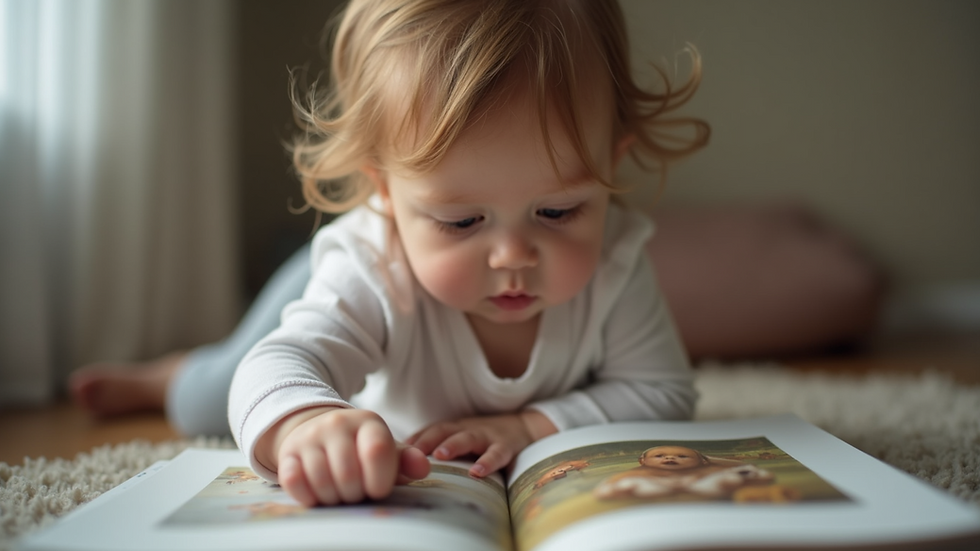Understanding Developmental Stages for Toddlers
- Amanda Bailey
- Sep 16, 2025
- 2 min read
Toddlers grow and change rapidly during their early years. Understanding their developmental stages helps caregivers support their growth effectively. This article explores the key areas of toddler development, providing practical insights and tips to nurture your child’s progress.
Physical Development in Toddlers
Physical growth is one of the most noticeable changes during toddlerhood. Toddlers gain strength, coordination, and motor skills that allow them to explore their environment more independently.
Gross motor skills improve as toddlers learn to walk, run, climb, and jump. For example, by 18 months, many toddlers can walk steadily, and by age 2, they may start running and kicking balls.
Fine motor skills develop as toddlers practice grasping small objects, stacking blocks, and using utensils. These skills are essential for self-feeding and early writing activities.
To support physical development:
Provide safe spaces for active play.
Offer toys that encourage manipulation, such as puzzles and building blocks.
Encourage outdoor activities to build strength and coordination.

Cognitive and Language Development in Toddler Years
Cognitive development involves how toddlers think, learn, and solve problems. Language skills also expand rapidly during this stage.
Toddlers begin to:
Understand simple instructions.
Use basic words and short sentences.
Recognize familiar objects and people.
Between 18 months to 2 years, toddlers often experience a vocabulary explosion, learning new words daily. They start to combine words to express needs and ideas.
Practical ways to encourage cognitive and language growth:
Talk to your toddler frequently, describing activities and objects.
Read books together daily to build vocabulary and comprehension.
Play interactive games like “peek-a-boo” or simple puzzles.

Emotional and Social Development in Toddlers
Toddlers begin to understand their feelings and those of others. They start to develop social skills that will help them interact with peers and adults.
Key emotional and social milestones include:
Showing affection and attachment to caregivers.
Expressing a range of emotions such as joy, frustration, and fear.
Beginning to share and take turns, though this can be challenging.
To foster emotional and social growth:
Respond warmly to your toddler’s emotions.
Encourage playdates to practice social interactions.
Model positive behavior and empathy.

Supporting Toddler Development at Home
Creating a nurturing environment at home is crucial for toddler development. Here are some actionable recommendations:
Establish routines - Consistent meal, play, and sleep times help toddlers feel secure.
Encourage exploration - Allow safe opportunities for your toddler to discover new things.
Limit screen time - Focus on interactive and hands-on activities instead.
Provide healthy nutrition - Balanced meals support physical and brain development.
Celebrate achievements - Praise efforts and milestones to build confidence.
By integrating these practices, caregivers can create a supportive atmosphere that promotes all areas of development.
What to Expect Next in Toddler Growth
As toddlers approach preschool age, their skills will continue to expand. They will become more independent, curious, and communicative. Understanding these developmental stages helps caregivers anticipate changes and provide appropriate support.
Remember, every child develops at their own pace. If you have concerns about your toddler’s progress, consulting a pediatrician or early childhood specialist can provide guidance.
Supporting your toddler’s growth today lays the foundation for a confident and capable future.



%20(Facebook%20Cover)%20(Stickers%20(Rectangle)%20(Landscape))%20(4).png)



Comments